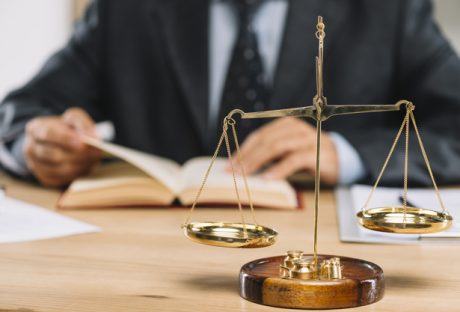With the opioid epidemic at an all-time high, law enforcement agencies are cracking down on drug possession offenses all over the country. Arizona is no different. In Arizona, if you are caught with drugs on your person or in your car, you can expect to face some serious legal repercussions. This also applies to anyone caught with drug paraphernalia in their possession. Depending on the type and amount drug, you could be facing some serious fines and jail time.
Arizona takes drug possession very seriously. The bottom line is if you are caught under the influence of drugs or with drugs in your possession, you will probably be charged with a felony. In order to be found guilty of drug possession in Arizona, the state must prove the following:
- You knowingly possess the drugs or paraphernalia- It’s not enough that you are found in a house where drugs are found. There has to be some connection between you and the drugs in order for you to be found guilty.
- The substance was, in fact, an illegal or illicit drug – Just because you think something is a drug, doesn’t mean you’ll be convicted of the crime of possession. If you have a bag of oregano, you can’t get charged with possession of marijuana – even if you bought it thinking it was marijuana.
Arizona also breaks drugs down into different categories. Drugs can be defined as any of the following:
- Marijuana – This category includes synthetic marijuana, edibles, or regular marijuana.
- Peyote
- Prescription drugs – This would include anti-anxiety drugs and other drugs that are legally prescribed. To be charged with drug possession, you would have to be found with drugs that you personally don’t have a prescription for.
- Dangerous drugs –this would include methamphetamines, cocaine, ecstasy, etc.
- Narcotics – Pain medication and other opiates.
- Vapors – This would include inhalants.
What are the Different Penalties for Drug Possession?
If you are busted with drugs in Arizona, you are going to face some serious consequences. The severity of the penalty will depend on how much of the drug you have in your possession. If you have just enough for personal use, it will more than likely qualify as simple possession. If, however, you have more than you could be expect to use yourself, you’ll be charged with possession and intent to distribute.
In Arizona, you will not be sent to prison for your first or second offense of drug possession. You will be sent to mandatory treatment and will be handed some pretty stiff fines. Additionally, you may be given a suspended sentence or probation for your first or second offense. Arizona will not impose a prison sentence until your third offense.
Defenses to Drug Possession:
As with most crimes, there are defenses to drug possession in Arizona. Your criminal defense attorney will raise any and all of the applicable defenses in your trial. He will also use these defenses as a bargaining tool when he tries to negotiate a reduced charge or sentence with the prosecutor. The available defenses to drug possession in Arizona include:
- Lack of Knowledge – If you truly had no idea the drugs were in your possession, you may be found not guilty. Examples of this are when third parties placed drugs in your car or purse. It is very difficult to prove lack of knowledge.
- Illegal Search – If the police had no reasonable basis for conducting the search in the first place, the charges will have to be dismissed.
- Religious Use – This defense is rarely successful. In order to use this defense, you have to prove that you were using the drugs as part of a religious (not merely a cultural) ritual.
Medical Marijuana Card – If you are caught with less than 2.5 ounces of marijuana and are a legitimate marijuana patient, you may raise this defense. You will still have to prove that the drugs came from a genuine and legal dispensary.
Read Also:






















